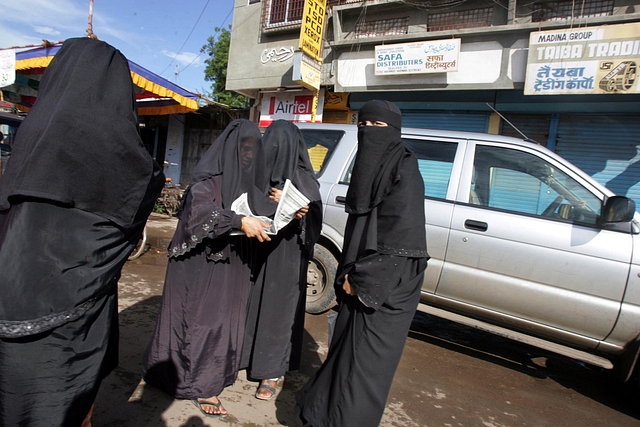
Uttar Pradesh Becomes First State To Endorse Centre’s Draft Bill On Triple Talaq
The Yogi Adityanath-led Government of Uttar Pradesh has become the first state government to endorse the Modi sarkaar’s draft bill that makes instant triple talaq a cognisable and non-bailable offence.
The draft law, which provides for three years in prison and a fine for a Muslim man trying to divorce his wife by uttering "talaq" three times, got the UP government's approval at a meeting of the state cabinet chaired by Chief Minister Adityanath in Lucknow yesterday (5 December).
"The Centre's draft Bill on triple talaq has been endorsed by the Cabinet. The Centre had asked the states to send their respective views on it by 10 December," UP government spokesman and cabinet minister Siddharth Nath Singh said.
Uttar Pradesh has thus become the first state to give its nod to the proposal, which is to be introduced as a bill in the winter session of Parliament beginning next week, an official said.
There have been 177 reported cases of instant talaq before the judgement and 66 after the Supreme Court order this year and Uttar Pradesh tops the list, he said.
As per the draft, tripe talaq or talaq-e-biddat will be a "cognisable and non-bailable" offence punishable with three years imprisonment and the wife will be entitled to maintenance and the custody of children if they are minor.
The Supreme Court had struck down triple talaq on 22 August, calling the practice unconstitutional and in violation of Article 14 of the Constitution, which provides for equality before the law.
The draft 'Muslim Women Protection of Rights on Marriage Bill' was sent by the Centre to the states for their views as the practice continued despite the Supreme Court striking it down.
The draft was prepared by a ministerial group headed by Home Minister Rajnath Singh.
The proposed law would only be applicable on instant triple talaq or 'talaq-e-biddat' and it would give power to the victim to approach a magistrate seeking "subsistence allowance" for herself and minor children. The woman can also seek the custody of her minor children from the magistrate who will take a final call on the issue.
Under the draft law, triple talaq in any form – spoken, in writing or by electronic means such as email, SMS and WhatsApp – would be bad or illegal and void.
The provision of subsistence allowance and custody has been made to ensure that in case the husband asks the wife to leave the house she should have legal protection.
All India Muslim Personal Law Board (AIMPLB) member Maulana Khalid Rashid Farangi Mahali questioned the need for making the law when the apex court had already termed triple talaq as unconstitutional.
"In the draft there is a provision of three-year jail to the husband and compensation to the wife. When the husband will go to jail, how will he pay the compensation," he wondered.
"The government should have consulted community representatives before going ahead on it. Neither the Centre nor the state government has done this. What is the guarantee this law will not be misused like anti-dowry act. It is direct interference in Shariyat," he claimed.
All India Muslim Women's Personal Law Board (AIMWPLB) chairperson Shaista Amber said that before finalising the Act, the organisation which worked against triple talaq should have been consulted.
The All India Shia Personal Law Board (AISPLB) welcomed the government's decision to enact a law to end triple talaq.
Some of the activists who spearheaded the movement against 'triple talaq' have maintained that they want nothing less than a Muslim personal codified law, and that merely amending the IPC would not suffice. PTI